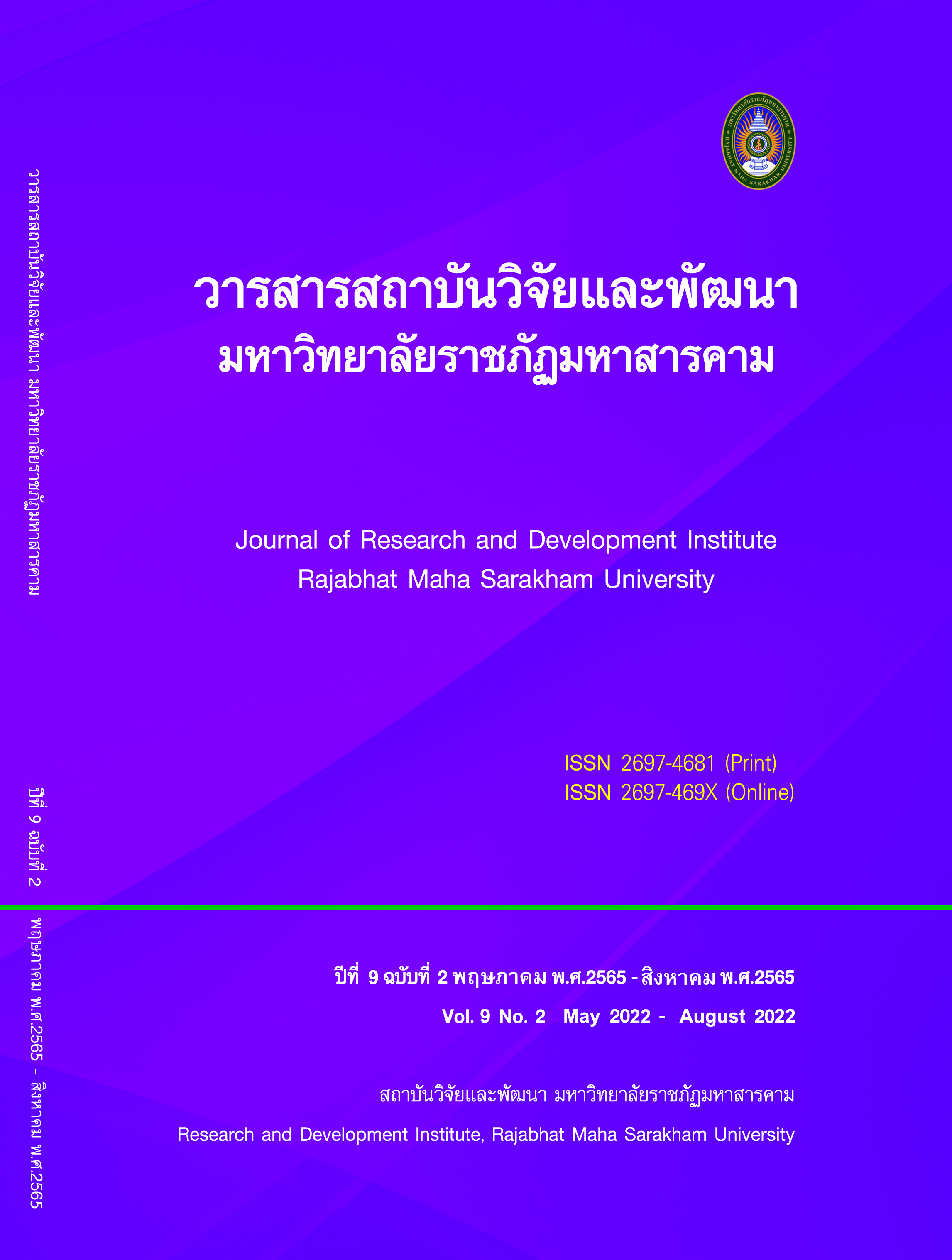Use of information technology in educational administration of the school Under the Bueng Kan Primary Educational Service Area Office
Keywords:
information technology in education administration , Using Information Technology , education administrationAbstract
This research aimed to study and compare the opinion levels of personnel towards the use of information technology in educational administration. of schools under the Bueng Kan Primary Educational Service Area Office According to personnel opinions, classified by gender, status and work experience. personnel of the school under Bueng Kan Primary Educational Service Area Office, academic year 2020, set a sample size of 342 people and stratified random sampling used in the research. Research tools as a questionnaire, It is a 5-level estimation scale with a reliability of 0.86. The basic statistics used to analyze the data were frequency, percentage, mean, standard deviation, and the statistic used to test the hypothesis, i.e. t-test and F-test, by using Scheffe 's method.
The results of the research found that
- Overall opinion level of personnel towards the use of information technology in educational administration of schools under the Bueng Kan Primary Educational Service Area Office was at a high level. When considering each aspect, it was found that use of information technology in educational administration at a high lecel in all aspects, the averages were arranged in descending order, namely general administration, budgeting, personnel management, academics.
- The opinion level of personnel towards the use of information technology in educational administration of schools under the Bueng Kan Primary Educational Service Area Office classified by gender overall differed statistically at the .05 level.
- The opinion level of personnel towards the use of information technology in educational administration of schools under the Bueng Kan Primary Educational Service Area Office classified by status, Overall and each aspect is different. statistically significant at the .05 level
4. The opinion level of personnel towards the use of information technology in educational administration of schools under the Bueng Kan Primary Educational Service Area Office Classified by work experience Overall and each aspect is different. statistically significant at the .05 level
References
Krejcie & Morgan. (1970). Determining Sample Size for Research Activities. Journal of Education and Psychological Measurement. 13(3): 608.
Matsaeng, H. (2014). Information system administration in basic education institutions under Khon Kaen Primary Educational Service Area Office, Region 4. Khon Kaen : Khon Kaen University.
Ministry of Education. (2019). Driving the 6-region integrated education plan. [Online]. https://www.moe.go.th/moe/th/news/
National Electronics and Computer Technology Center. (2016). 30 Years of NECTEC = 30 NECTEC 3 Decades of Development of Thai Research, Practical Research. Pathum Thani : National Electronics and Computer Technology Center.
Petpraphai, P. (2015) A Study of the Demand for Information Technology of Graduate Students Phranakhon Rajabhat University. Bangkok : Phranakhon Rajabhat University.
Pinyosinwat, P. (2020). Study of Self-Learning Ability in Each Age of Sakaeo Community College Students Through Online Learning In the situation of coronavirus disease 2019. [Online]. https://tdri.or.th/2020/05/examples-of-teaching-and-learning-in-covid-19-pandemic
Raksit, Mandira. (2002). Sustained innovation of a program in educational technology :Promises, Realities, and concerns within a secondary school in Ontario. Master Thesis, M.A. (Education). Canada : Graduate School University Of Toronto.
Ruengurai, D. (2020). The role of executives in the organization's information strategy. [Online] Retrieved from https://www.gotoknow.org/posts/454745.
Srifa, P. (2015). School administration as the base. [Online]. http://portal.in.th/inno-nat/pages/867/.
Srisa-ard, S. (2013). Preliminary research. Bangkok : Suriwiriyasasson.
Downloads
Published
How to Cite
Issue
Section
License
Copyright (c) 2022 Journal of Research and Development Institute Rajabhat Maha Sarakham University

This work is licensed under a Creative Commons Attribution-NonCommercial-NoDerivatives 4.0 International License.
Articles that are published are copyrighted by the authors of the articles







